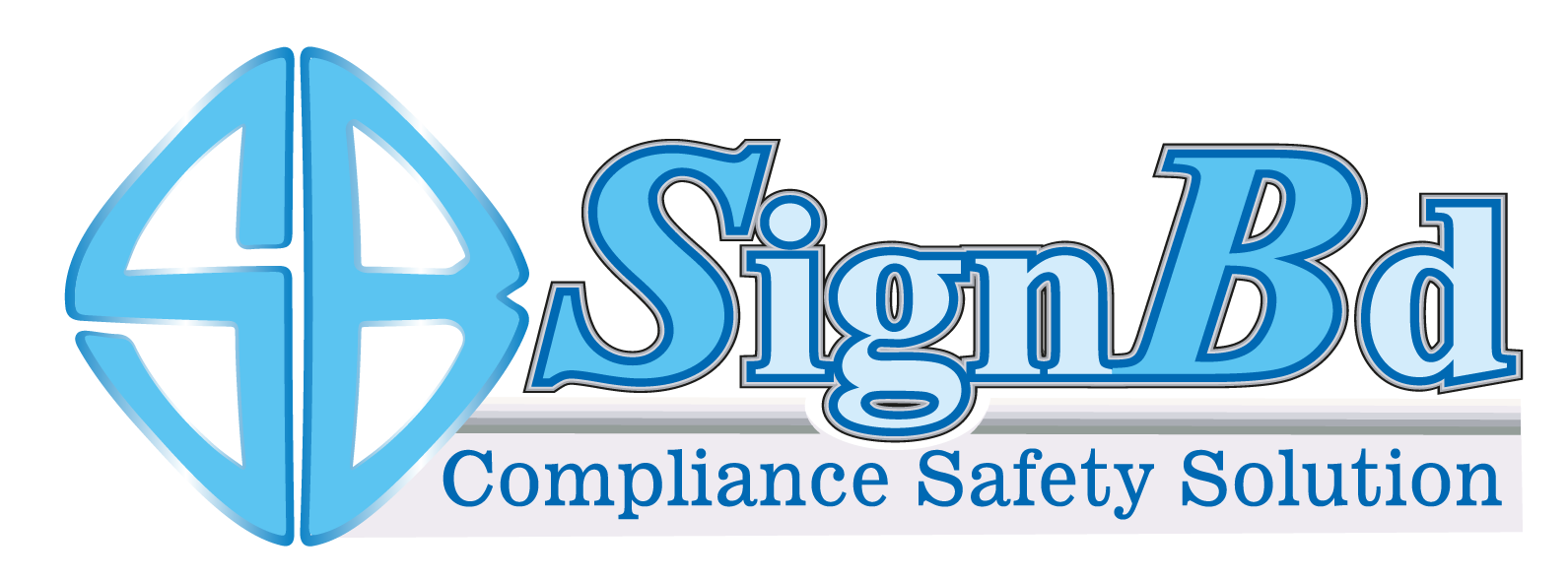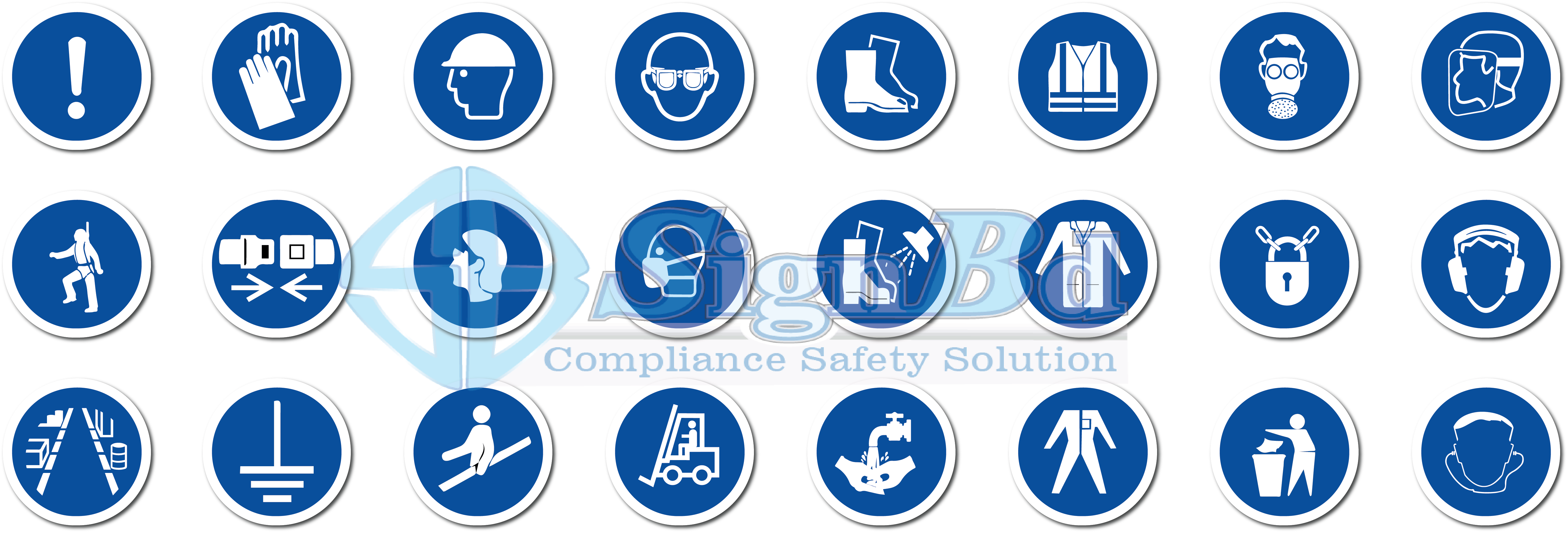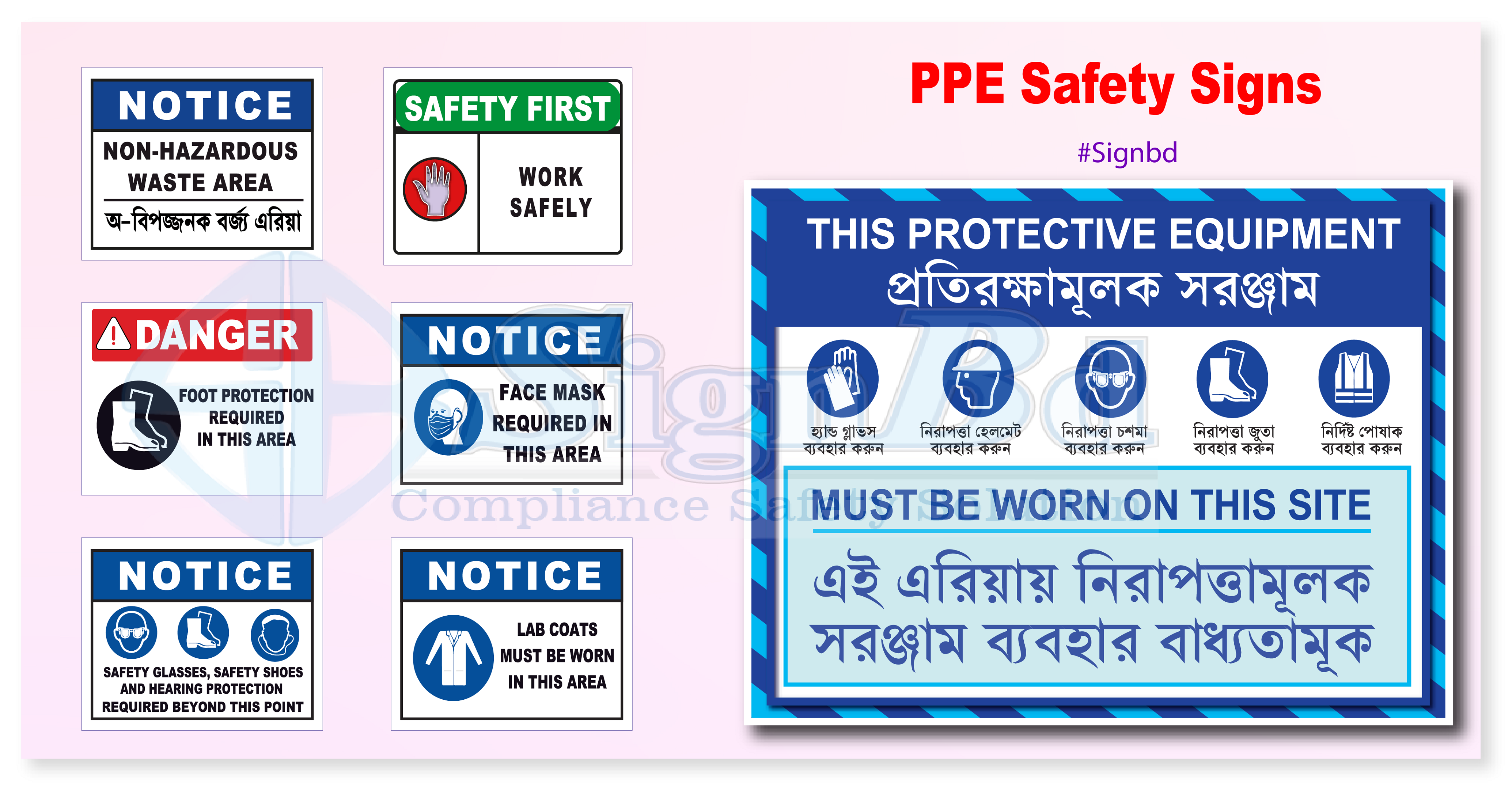+8801600371198
sign_bd@yahoo.com
Account Login
Home>>Compliance Safety Signs>>Garments Safety Signs
Garments Safety Signs
Enhancing Worker Safety with Effective Garment Factory Safety Signs
Introduction
In the dynamic garment industry, worker safety is a critical concern. Garment factories must enforce stringent safety measures, including the strategic placement of safety signs, to protect their workforce. These garment safety signs are crucial in conveying vital information, reducing workplace accidents, and ensuring a secure working environment. This article explores various essential safety signs for different sections of a garment factory and their role in bolstering worker protection.
The Importance of Garment Factory Safety Signs
Garment safety signs transcend regulatory compliance; they are visual aids that provide workers with critical information about potential hazards and safety protocols. By clearly marking dangerous areas and equipment, these signs help prevent accidents and injuries, fostering a safer and more efficient workplace.
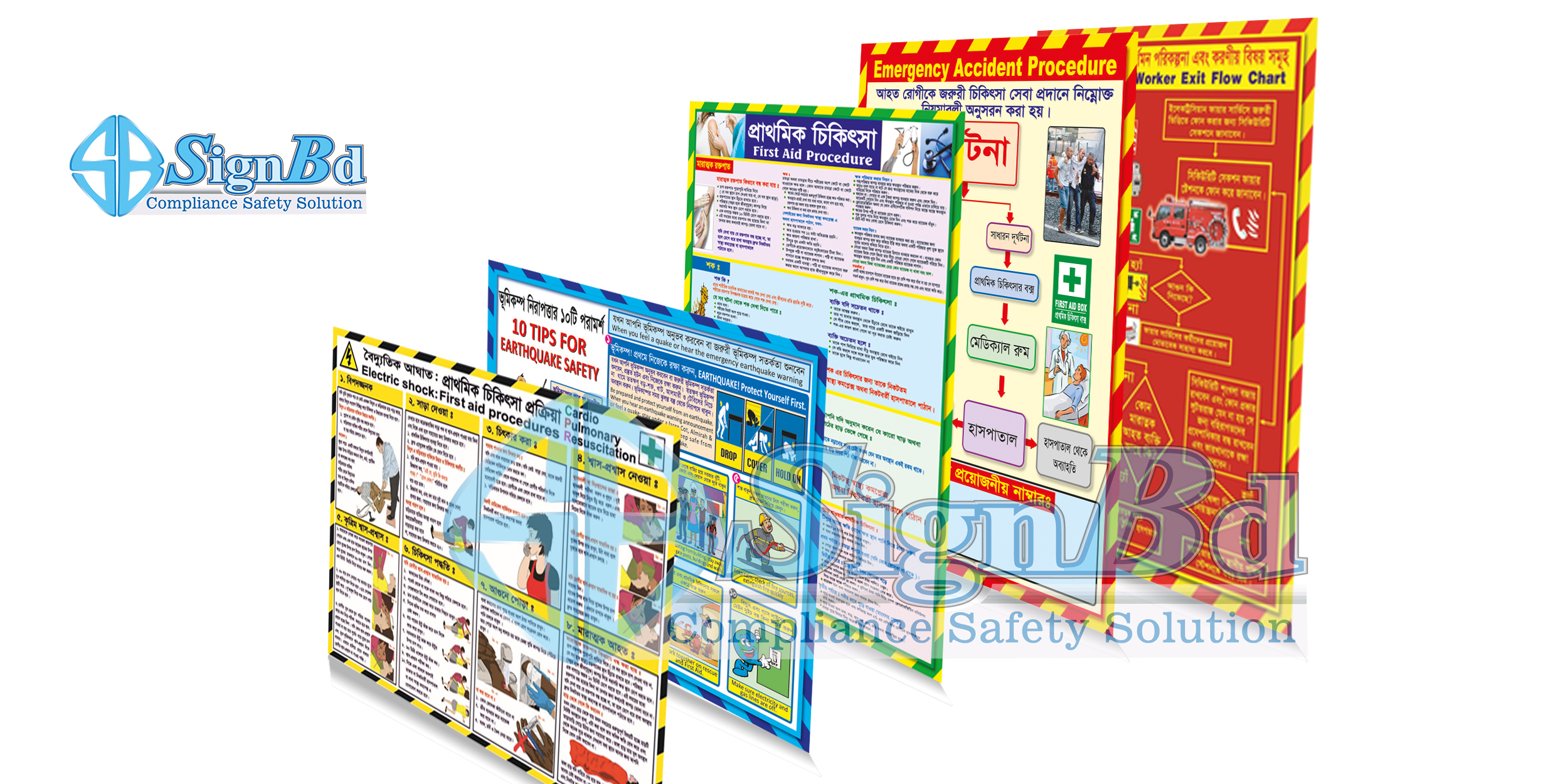
Types of Safety Signs in Garment Factories
Cutting Section Safety
The cutting section is where fabrics are prepared for sewing, involving sharp tools and machinery. Key safety signs here include:
- Warning Signs for Sharp Tools and Equipment: Highlighting areas with cutting tools to prevent accidental injuries.
- Fire Safety Evacuation Plans: Marking emergency exits and locations of fire extinguishers.
- Health Hazard Signs: Informing workers about potential hazards from certain materials.
Sewing Section Safety
The sewing section deals with sewing processes, requiring clear safety protocols and signs:
- Equipment Danger Signals: Indicating the presence of potentially dangerous machinery.
- Ergonomic Practice Health Safety Signs: Guiding workers on maintaining proper posture and safe sewing techniques.
- First Aid Principles: Providing information on first aid procedures in case of accidents.
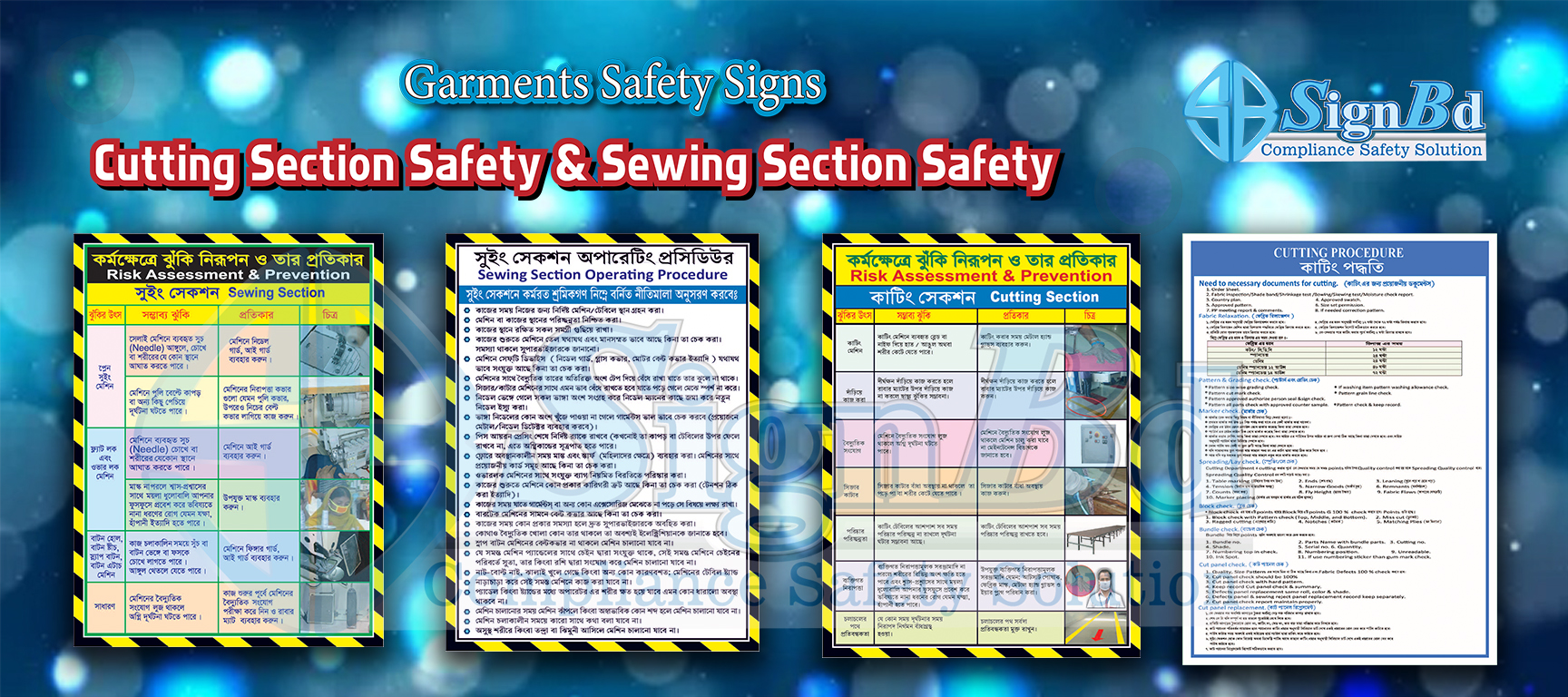
Sample Department Safety
In the sample department, prototypes and new designs are created, necessitating specific safety measures:
- Risk Assessment and Policies: Identifying potential risks and establishing safety procedures.
- SOP Signs for Sample Preparation: Standardizing procedures to ensure safety and consistency.
- Health Protection Safety Signs: Alerting workers to hazards associated with prototype materials.
Iron Section Safety
The ironing section involves high heat and pressing equipment, requiring:
- Risk Assessment and Policies: Addressing risks associated with high-temperature equipment.
- Heat Equipment Safety Signs: Warning about the dangers of hot surfaces.
- Fire Safety Evacuation Plans: Ensuring quick exits in case of emergencies.
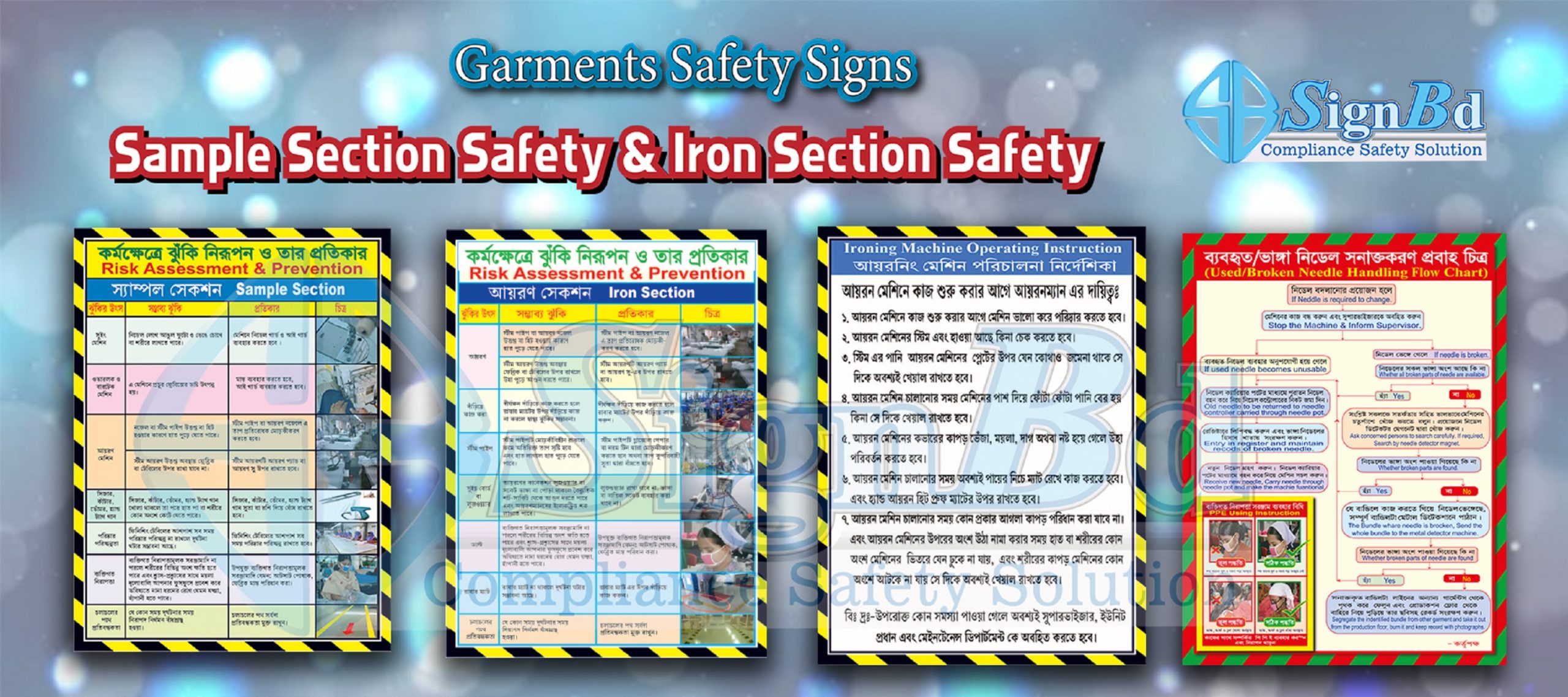
Finishing Section Safety
The finishing department focuses on the final inspection and packaging of garments:
- Quality Control Signs: Highlighting inspection protocols.
- Hazardous Material Handling Guidelines: Ensuring safe handling of chemicals and materials.
- Emergency Signs for Inspection Areas: Providing clear directions for emergency situations.
Packing Division Safety
In the packing department, garments are prepared for shipping:
- Proper Packing Procedure Guidelines: Ensuring safe and efficient packing methods.
- Health Protection Signs for Handling Materials: Advising on safe handling practices.
- SOP Signs for Packing Practices: Standardizing packing procedures for safety and efficiency.
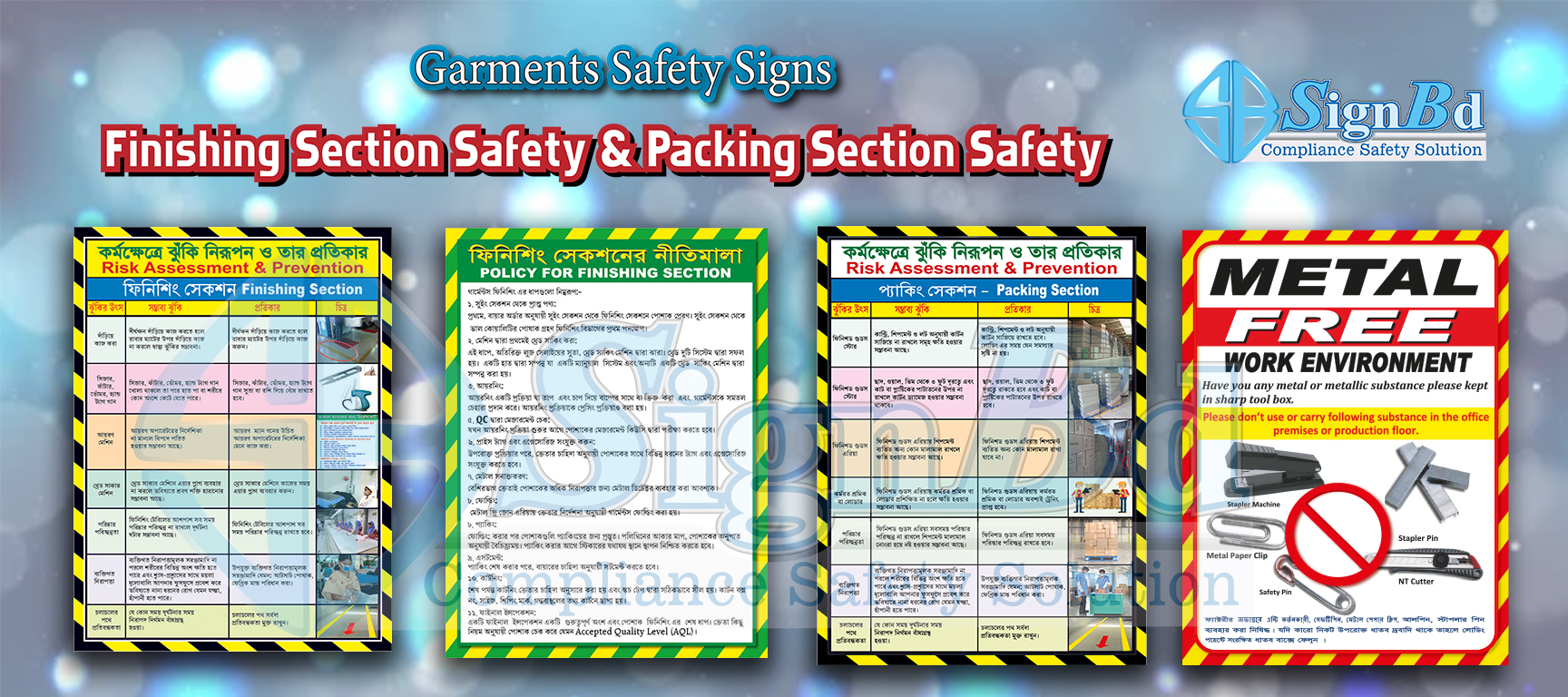
Utilities Section Safety
Utilities like generators, compressors, and boilers are crucial for factory operations:
- Risk Assessment and Policies: Identifying and mitigating risks associated with utility equipment.
- Maintenance and Operation SOP Signs: Ensuring safe operation and maintenance procedures.
- Emergency Signs Indicating Utility Shut-Off Points: Providing clear instructions for emergency shutdowns.
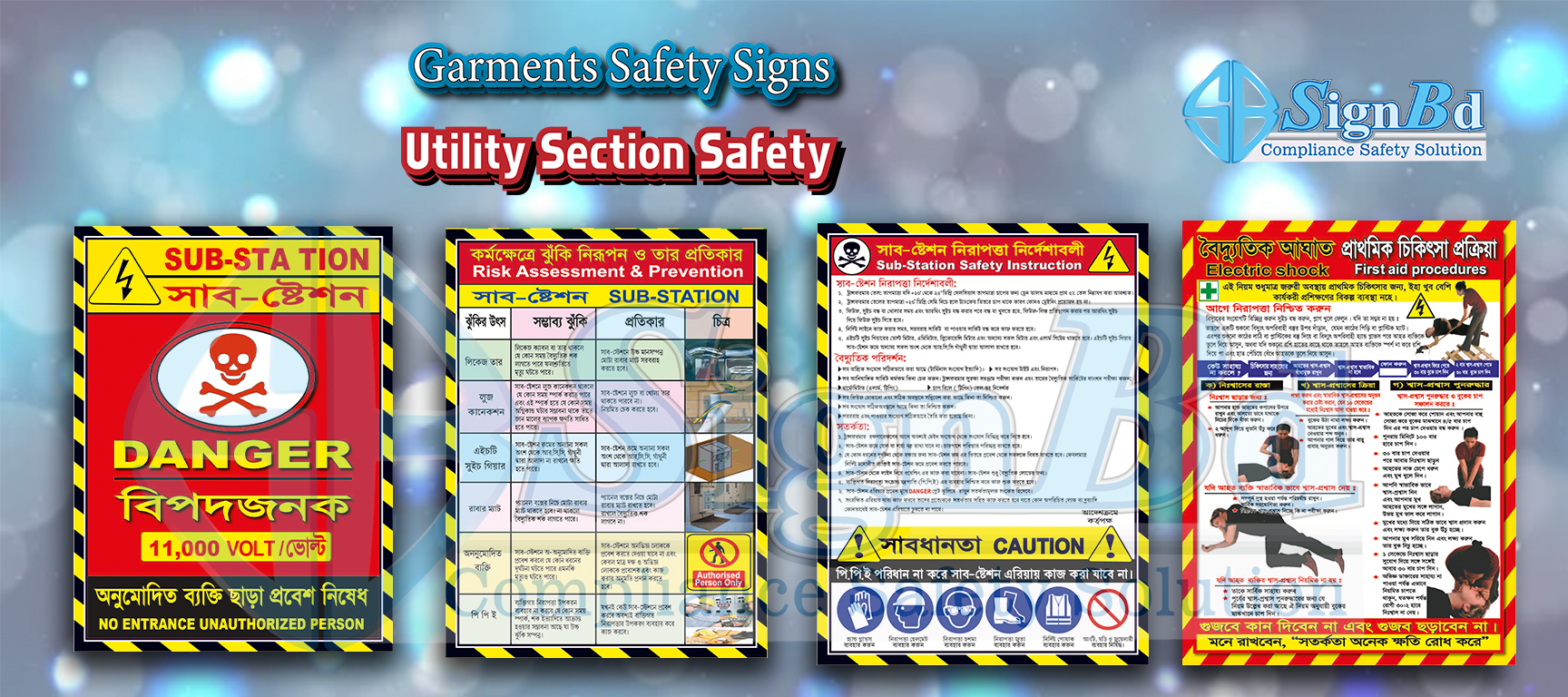
The Role of Safety Signs in Garment Factories
Safety signs play a crucial role in maintaining a safe and organized work environment. They not only alert workers to potential dangers but also provide clear instructions on how to avoid these hazards. This proactive approach to safety helps minimize accidents, ensures regulatory compliance, and promotes a culture of safety within the factory.
Conclusion
In conclusion, the implementation of comprehensive safety signs in garment factories is essential for protecting workers and ensuring a safe working environment. By addressing the specific risks associated with each section of the factory, these signs help prevent accidents and injuries, contributing to a more efficient and compliant operation. Prioritizing worker safety not only meets legal requirements but also reflects a commitment to the well-being and care of the workforce, fostering a responsible and safety-conscious industry culture.
Proper use of safety signs is a fundamental aspect of garment factory management, enhancing both safety and operational efficiency.
Most Popular Garment Safety Sign
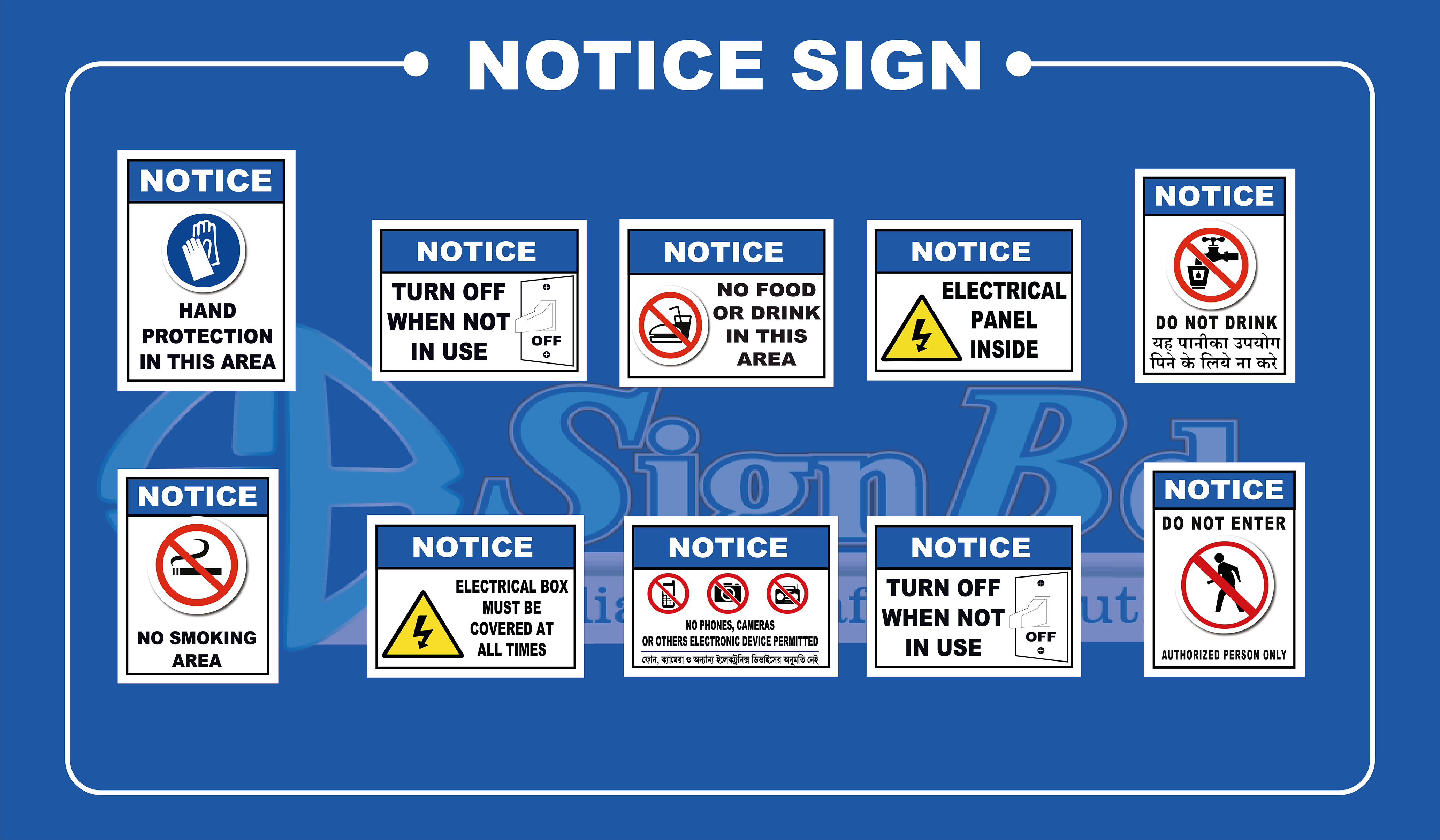
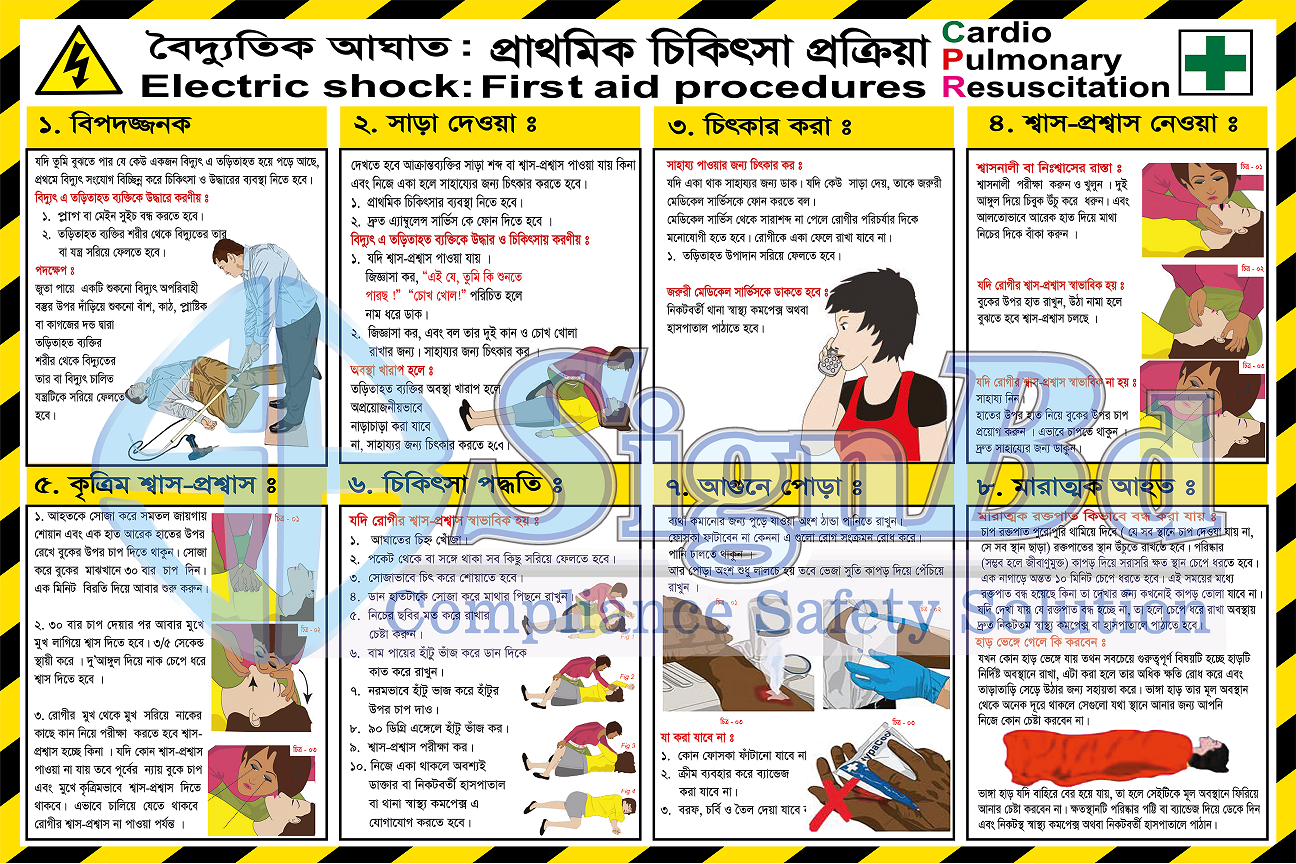
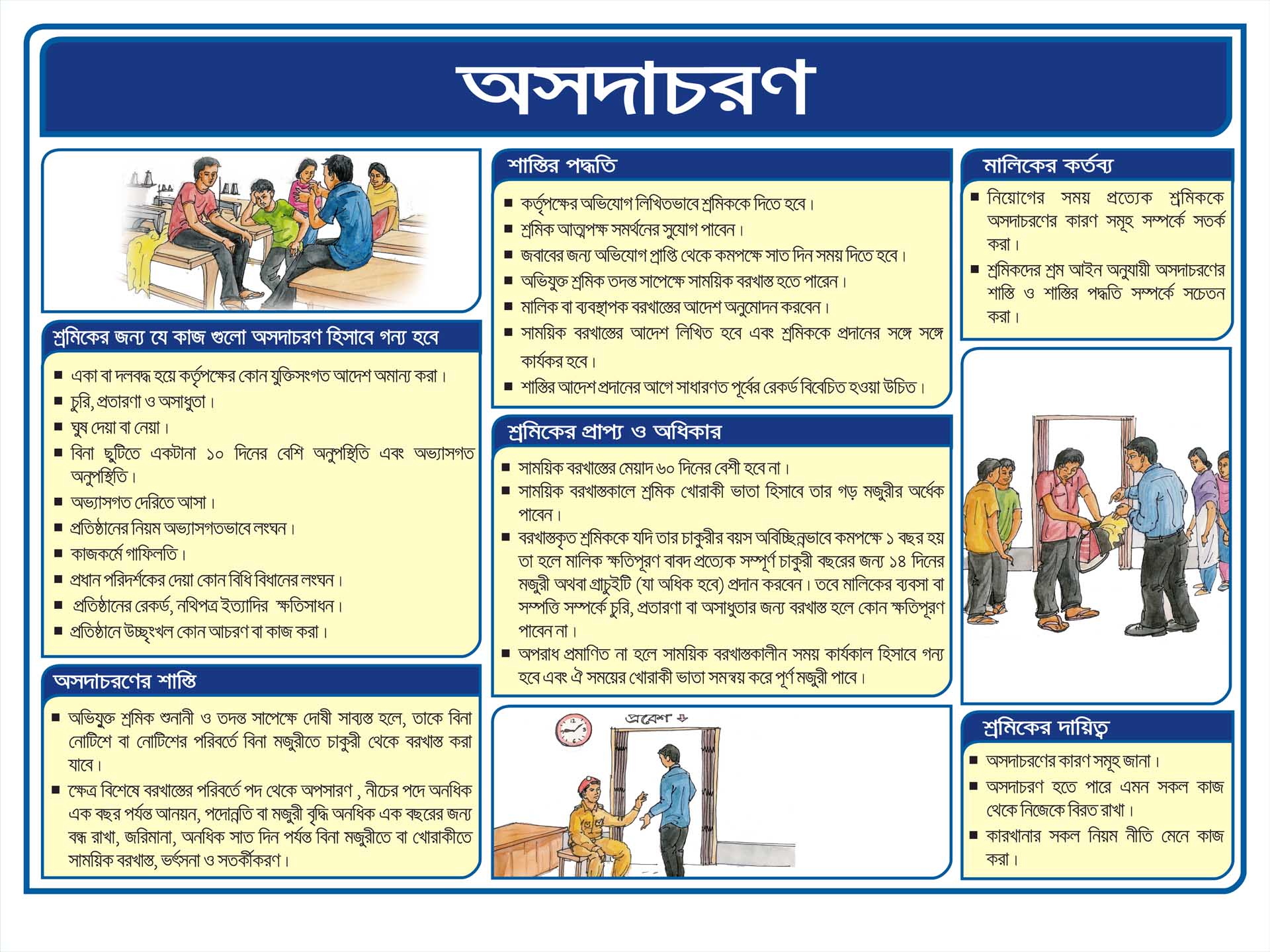
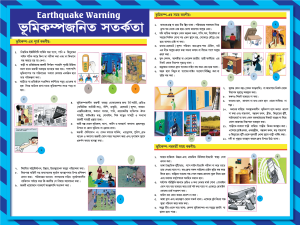
#GarmentSafety #WorkerSafety #SafetySigns #GarmentIndustry #WorkplaceSafety #SafetyFirst #RiskAssessment #SafetyPolicies #FireSafety #HealthSafety #EmergencySigns #FactorySafety #SafetyAwareness #SOPs #SafetyCulture #SafetyGuidelines #SafetyCompliance #WorkplaceHealth #SafetyPrecautions #SafetyEducation#SignBd

OSHA Safety Signs
OSHA Safety Signs: A Comprehensive Guide to Ensuring Workplace Safety
Understanding the critical role of OSHA safety signs in the workplace is essential. These signs fall into four main categories: Danger, Warning, Caution, and Notification. Each serves a unique purpose in addressing varying levels of risk. Why are OSHA standards vital for safeguarding employees and workers?
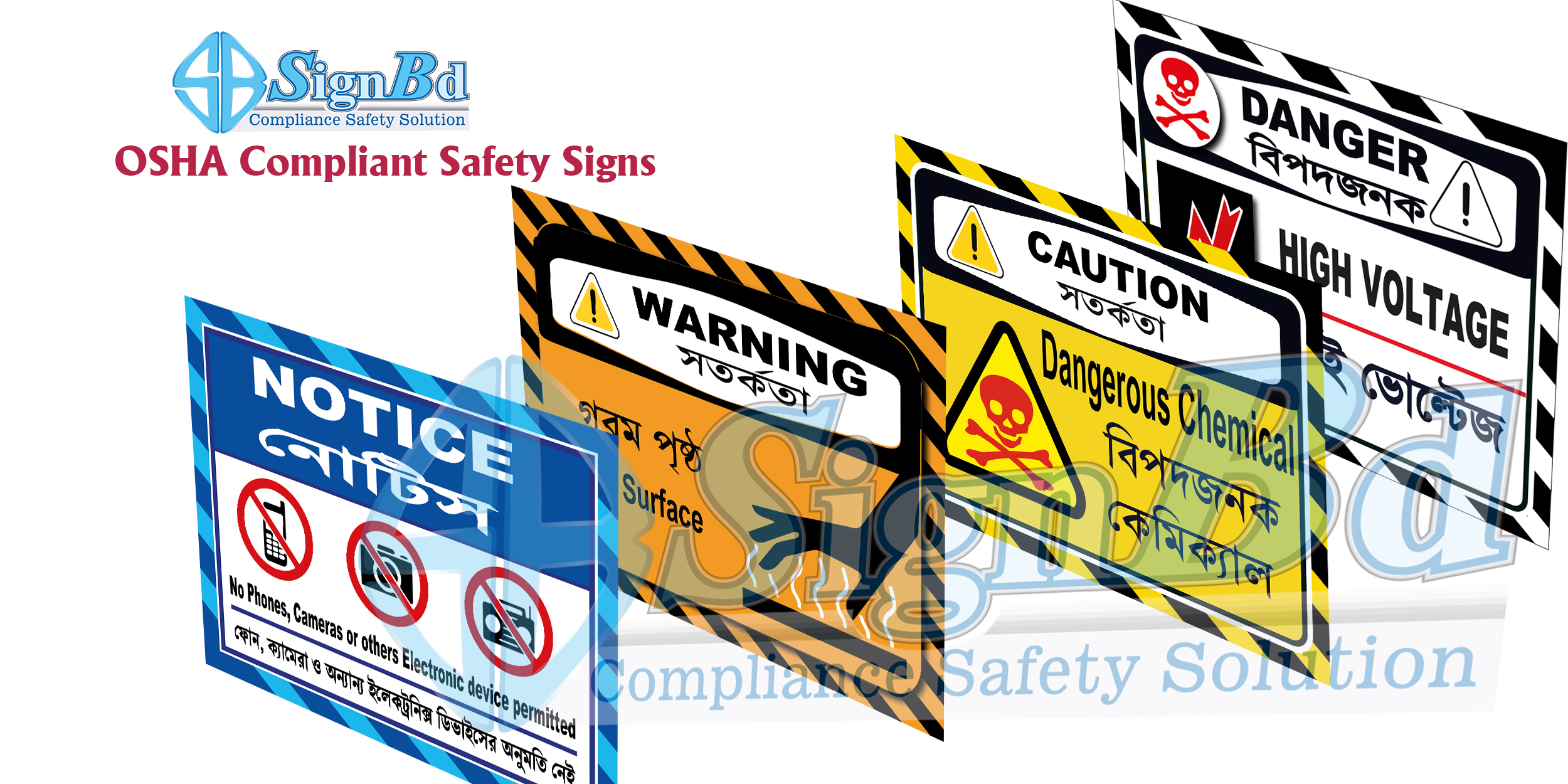

ANSI Safety Sign
Understanding and Implementing ANSI Safety Sign Standards
The American National Standards Institute (ANSI) sets the benchmark for safety and accident prevention through comprehensive guidelines, particularly ANSI Z535.4-2011 (R2017). These guidelines are crucial for creating effective safety signs and labels across various industries. Whether it’s a label or a sign, the primary goal is to convey critical safety information to comply with ANSI standards. Let’s delve into the importance of adhering to ANSI safety sign standards.
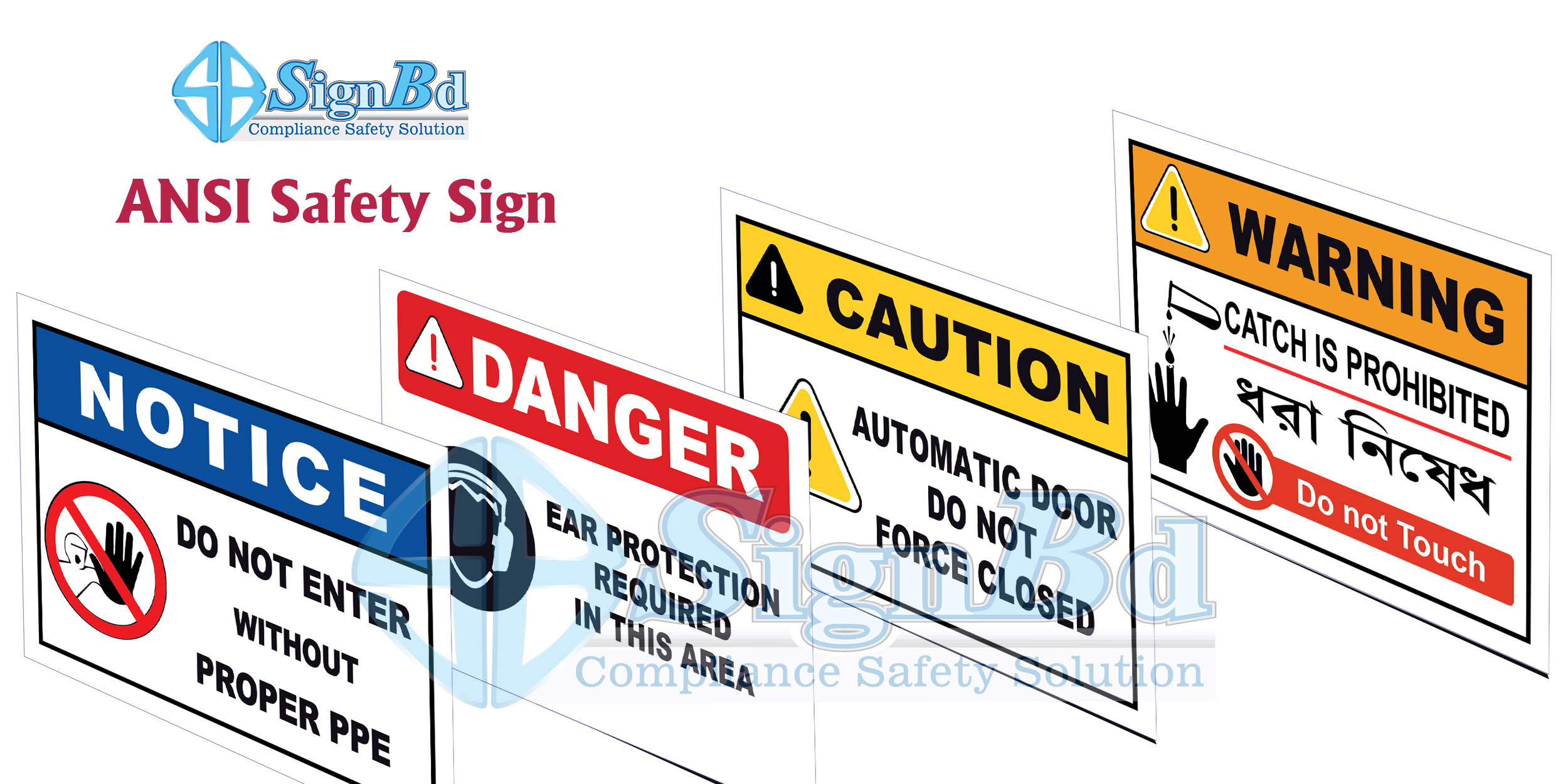

ISO Safety Signs
Enhancing Workplace Safety with ISO Safety Signs
In the modern workplace, safety is of utmost importance. One of the key elements in maintaining a safe environment is the use of ISO safety signs. These signs, governed by the ISO 7010 standard, are crucial for effective safety communication. They play a significant role in preventing accidents, ensuring fire safety, communicating health hazards, and facilitating emergency evacuations.

PPE Safety Sign
The Importance of PPE Safety Signs in the Workplace
What is PPE?
Personal Protective Equipment (PPE) refers to specialized clothing and equipment designed to shield the wearer from injury or infection. This includes items like protective clothing, helmets, gloves, goggles, and boots. PPE is crucial in various workplaces to protect workers from potential hazards such as chemical, radiological, physical, electrical, and mechanical dangers. Ensuring the use of PPE significantly reduces the risk of serious injuries and illnesses in the workplace.

The Essential Role of Caution Signs in Workplace Safety
Ensuring Safety Across Various Industries
In the world of industrial and manufacturing organizations, safety is paramount. Caution signs play an essential role in ensuring the well-being of employees and workers. This article delves into the significance of warning signs across various industries and how they contribute to workplace safety.
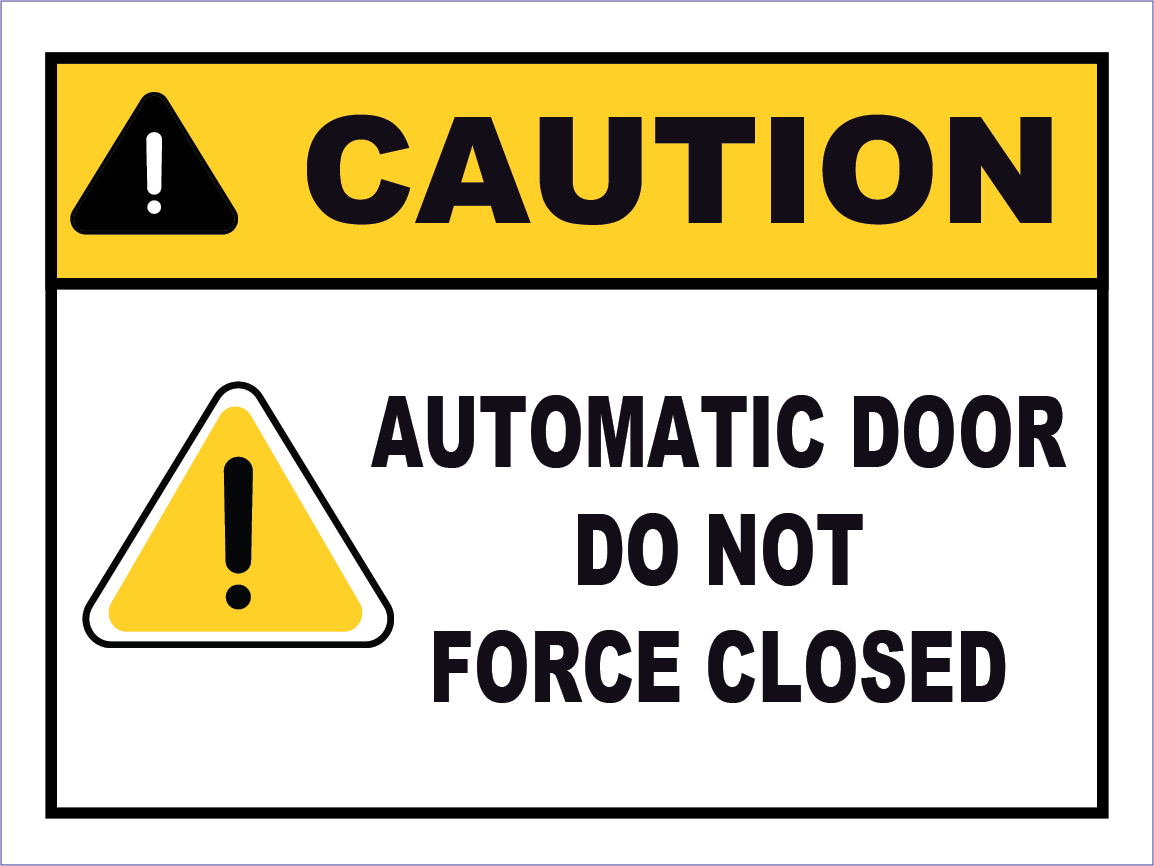
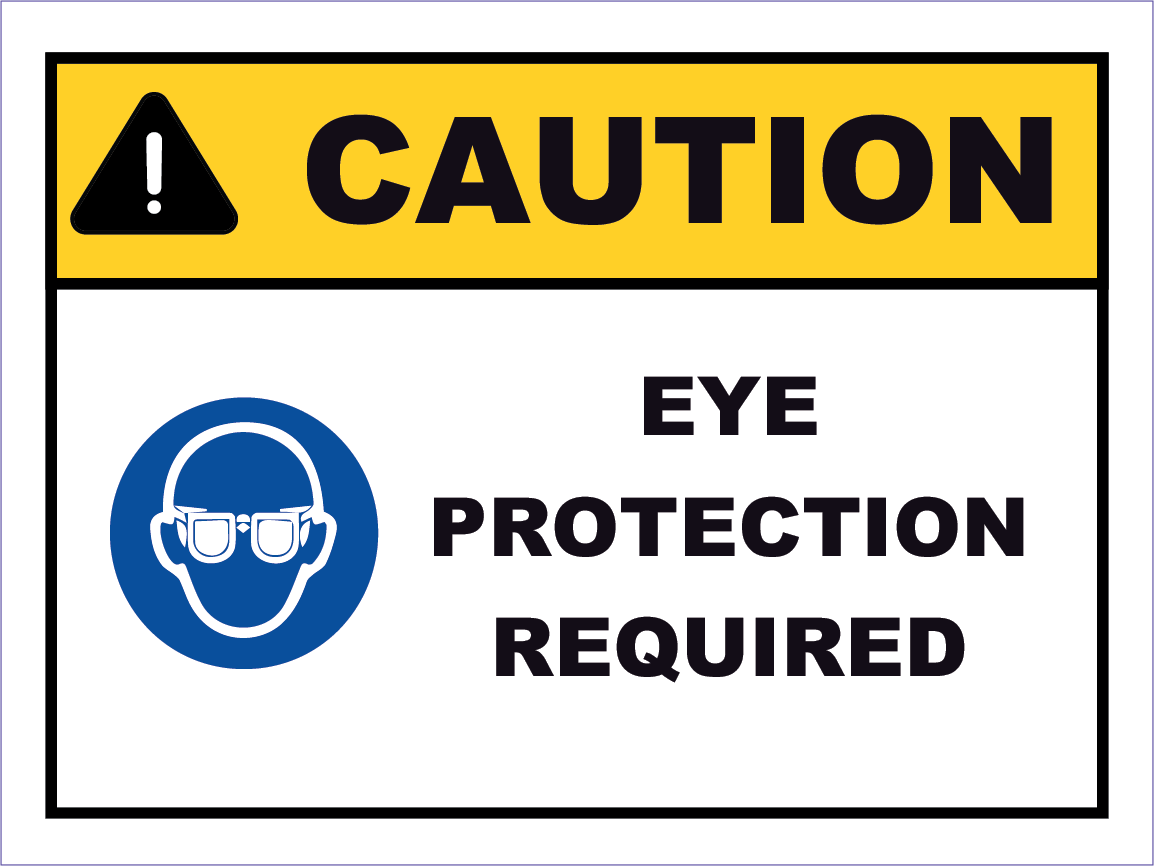
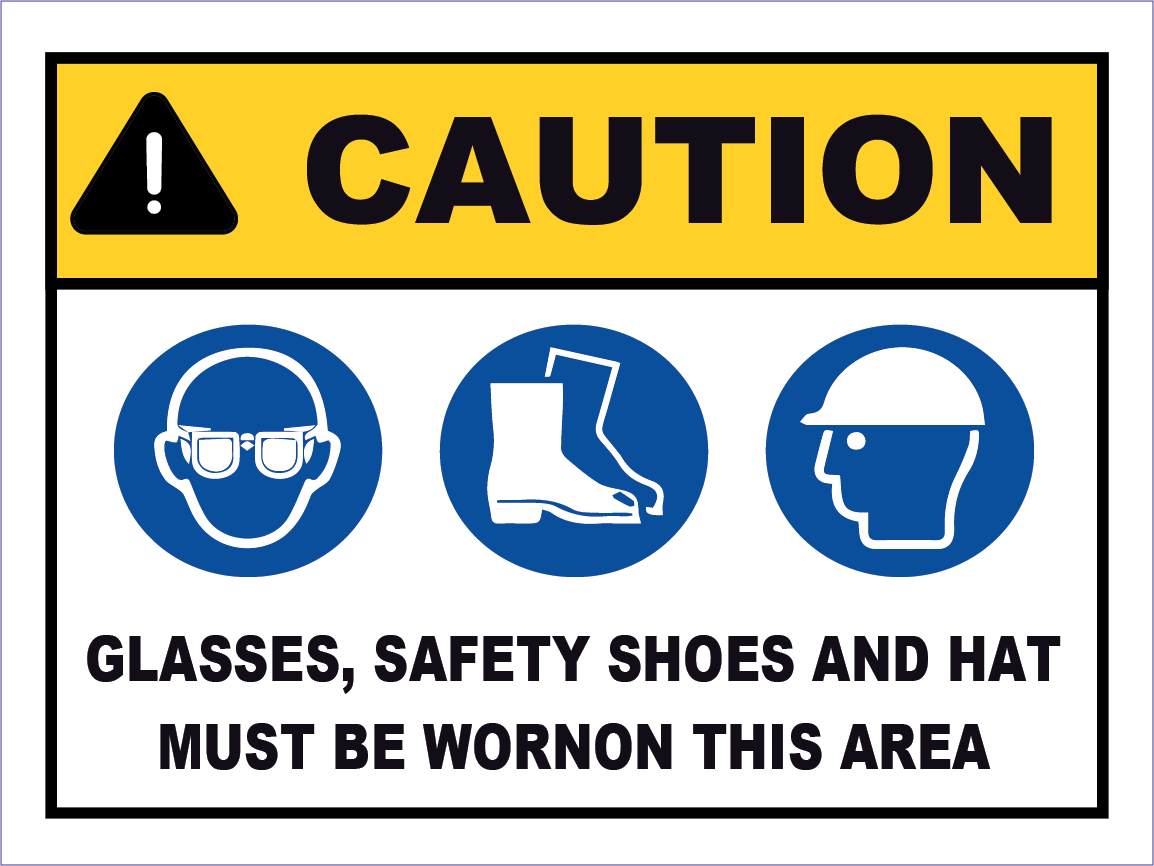
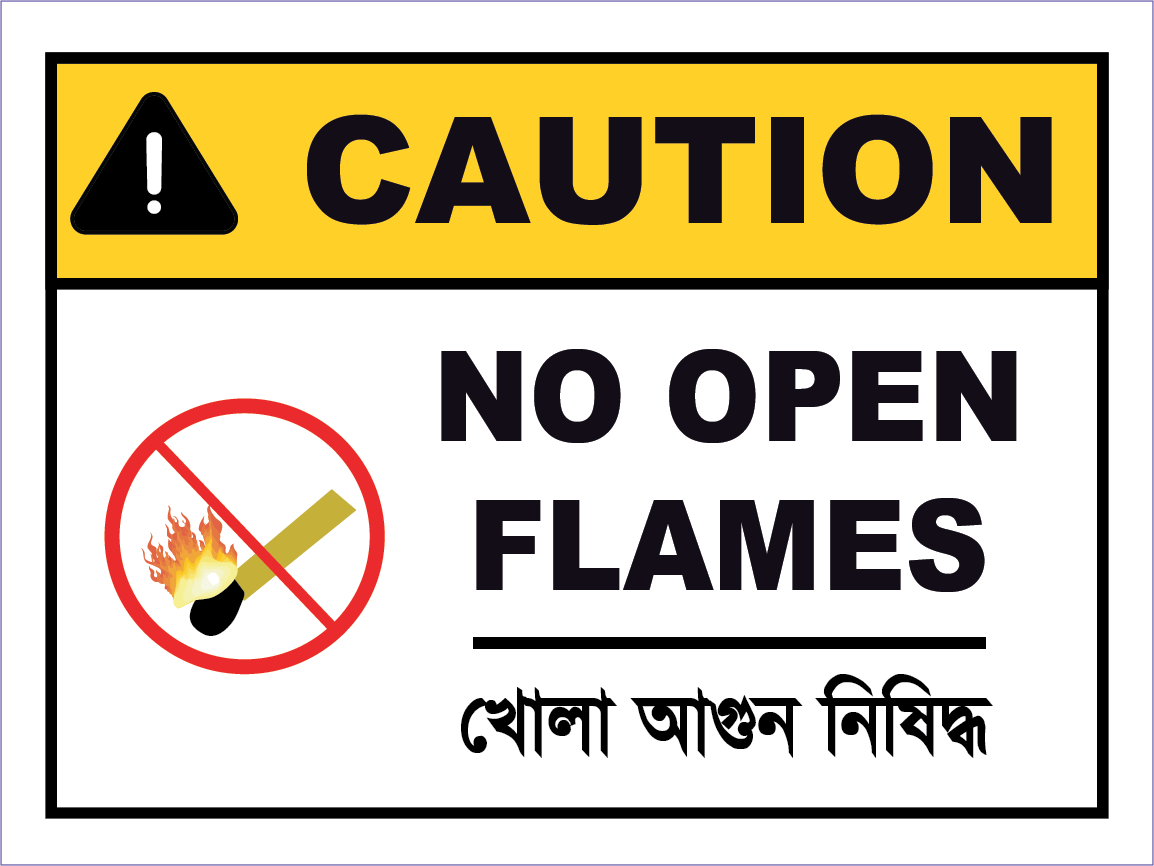
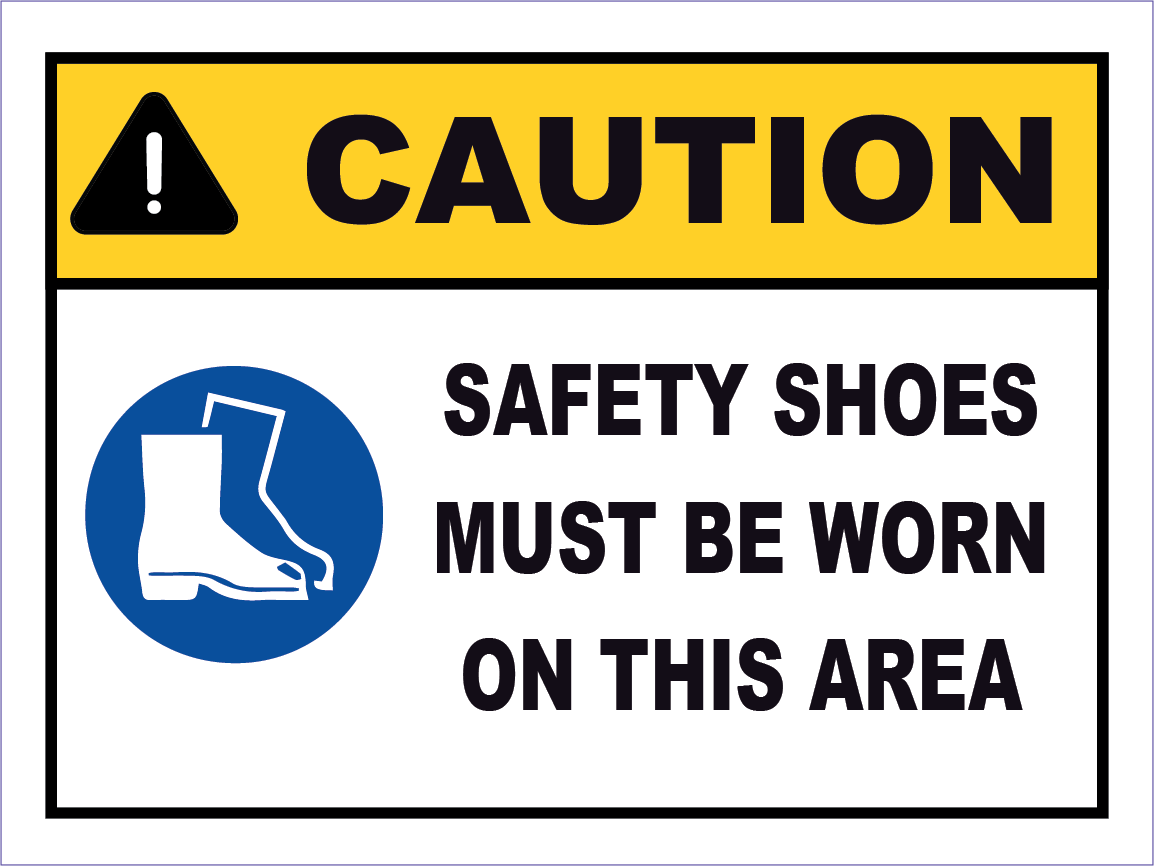

Bilingual Safety Signs
Danger Signs, Warning Signs, Mandatory Signs, Caution Signs, Prohibition Signs
Enhancing Workplace Safety with Bilingual Safety Signs
Introduction: The Importance of Bilingual Safety Signs
Effective communication in the workplace is crucial for ensuring safety, especially in multilingual environments. Bilingual safety signs are essential tools that help convey important safety information to all employees, regardless of their native language. This article delves into the significance of bilingual safety signs, including danger signs, warning signs, mandatory signs, and caution signs, across various industries.
Why Bilingual Safety Signs Matter
Bilingual safety signs act as universal communicators, ensuring that crucial safety information is accessible to everyone. Industries such as garment factories, dyeing and washing facilities, pharmaceutical companies, and tanneries rely heavily on these signs to maintain a safe working environment. These signs are not just visual aids; they are integral components of workplace safety.


Your Custom Evacuation Floor Plan Design
The Essential Guide to Fire Safety Evacuation Floor Plans
Ensuring the safety of employees in factories, industries, and companies worldwide hinges on having a meticulously designed fire safety evacuation floor plan. This article delves into the critical nature of these plans, particularly in compliance with US and European standards, and emphasizes their role in safeguarding worker and personnel safety.
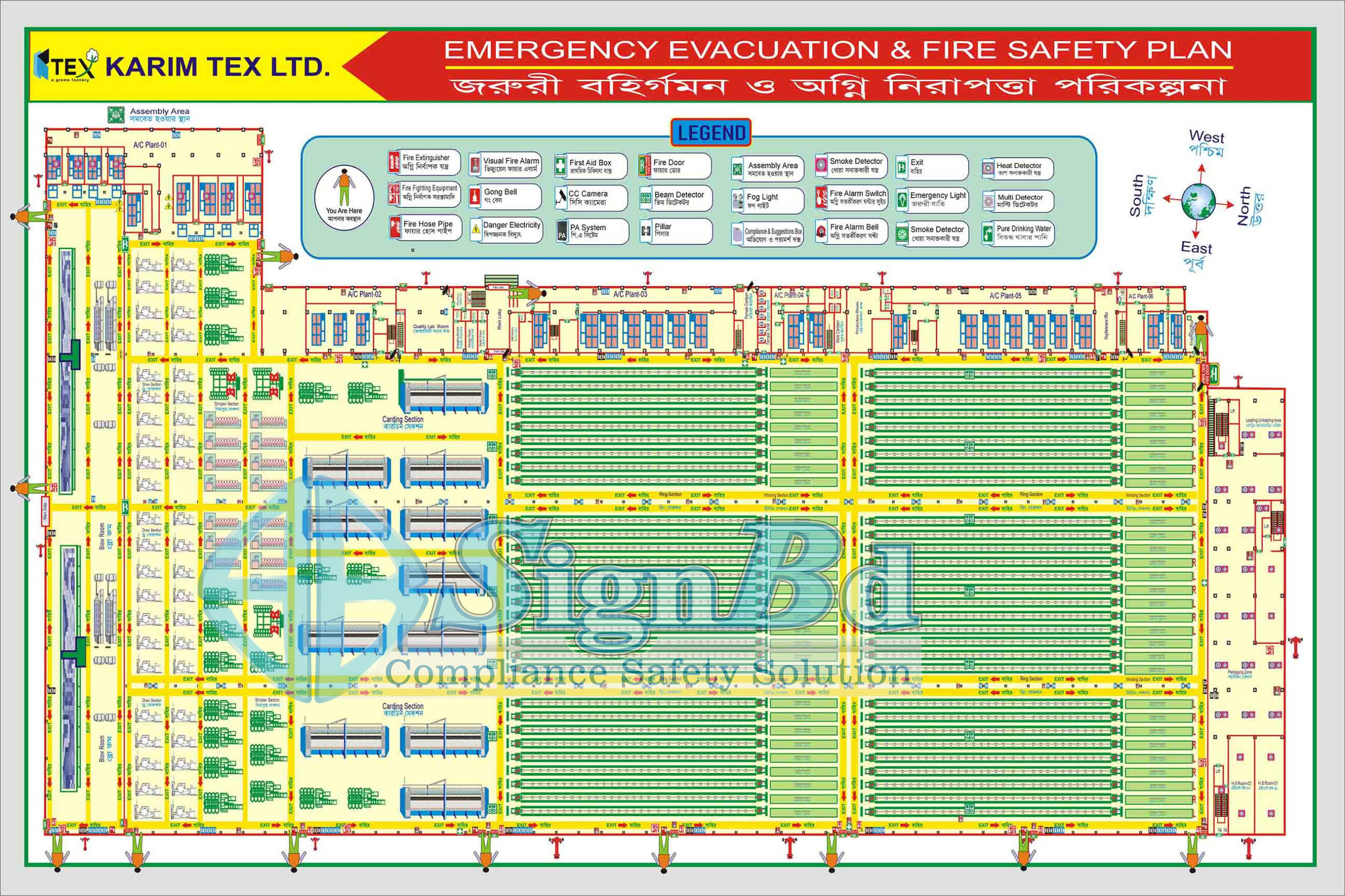
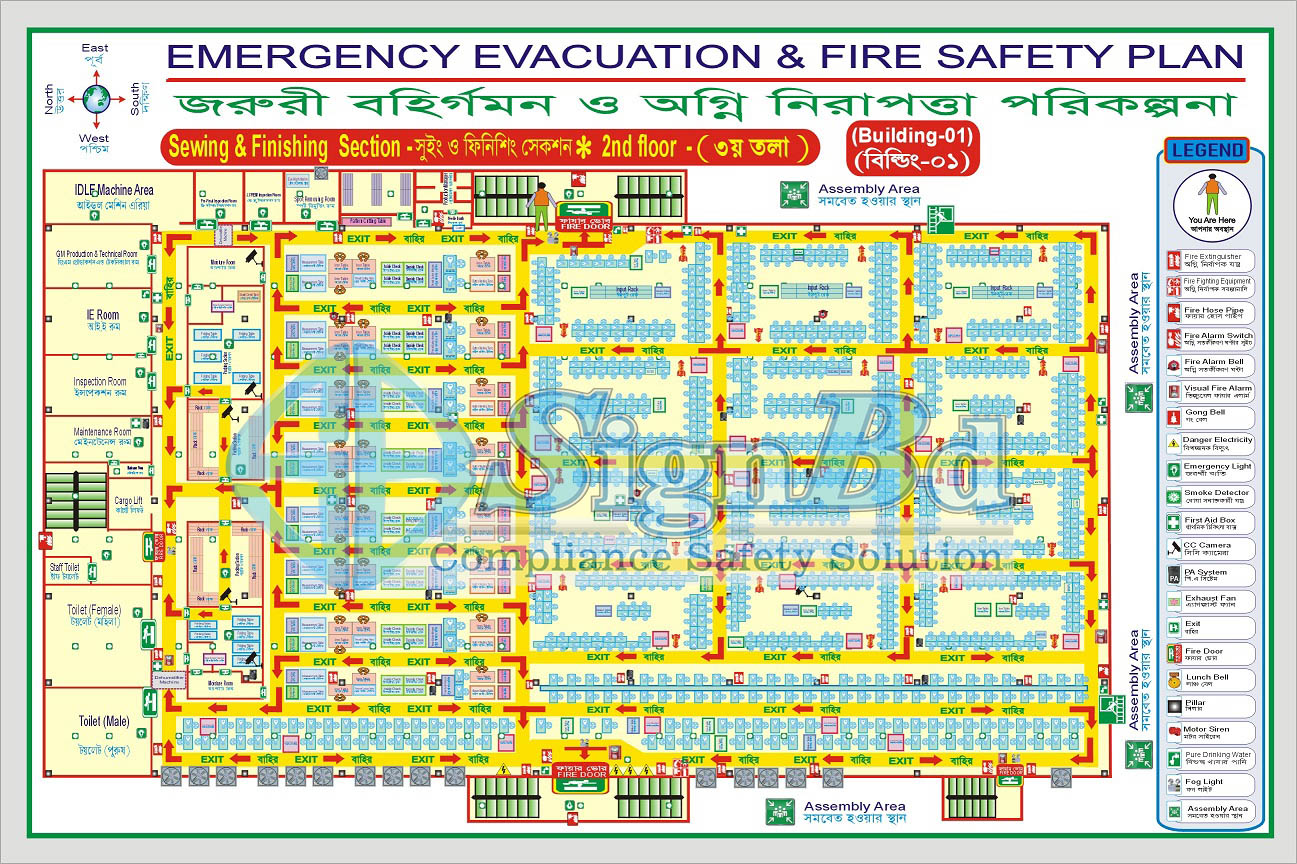
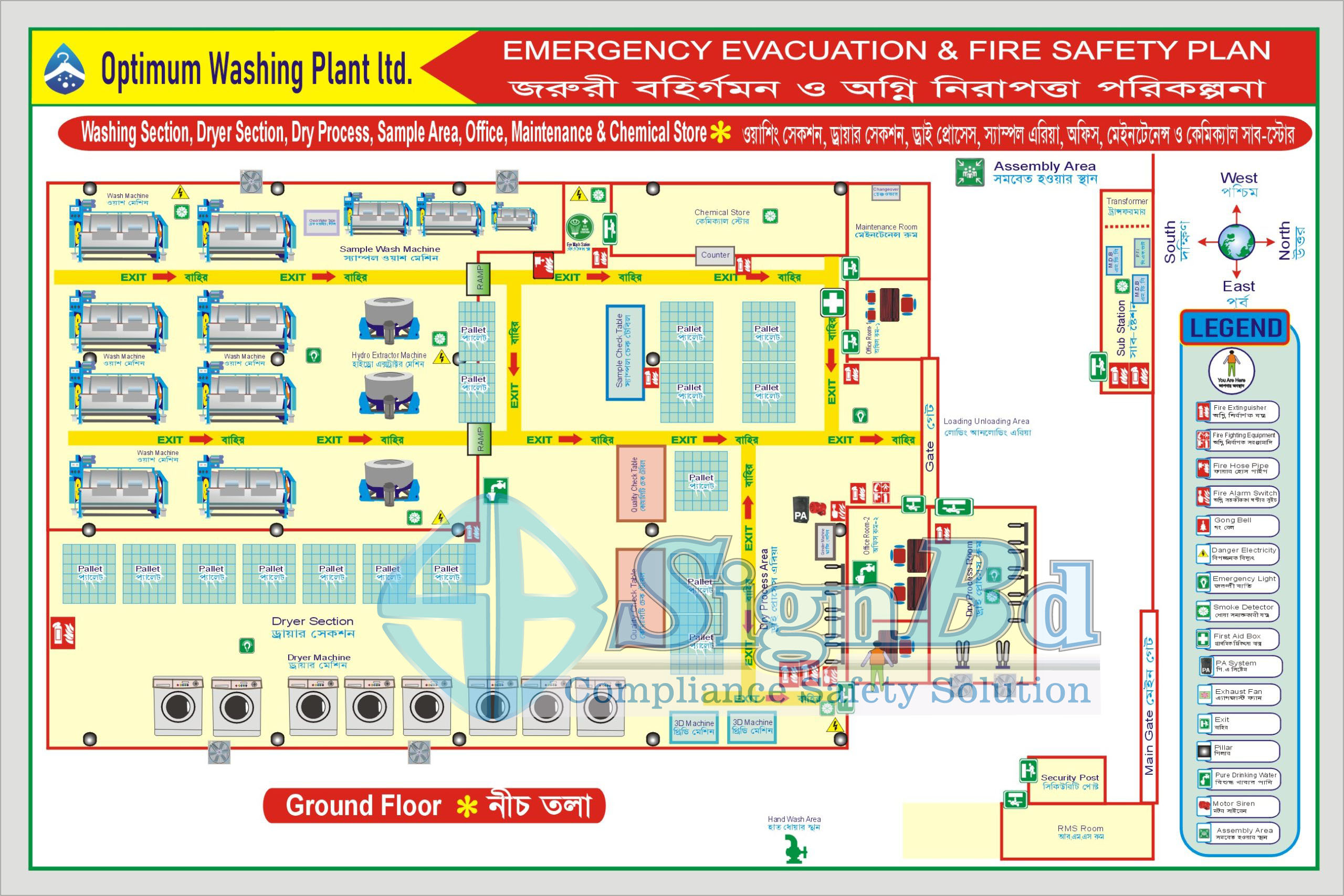
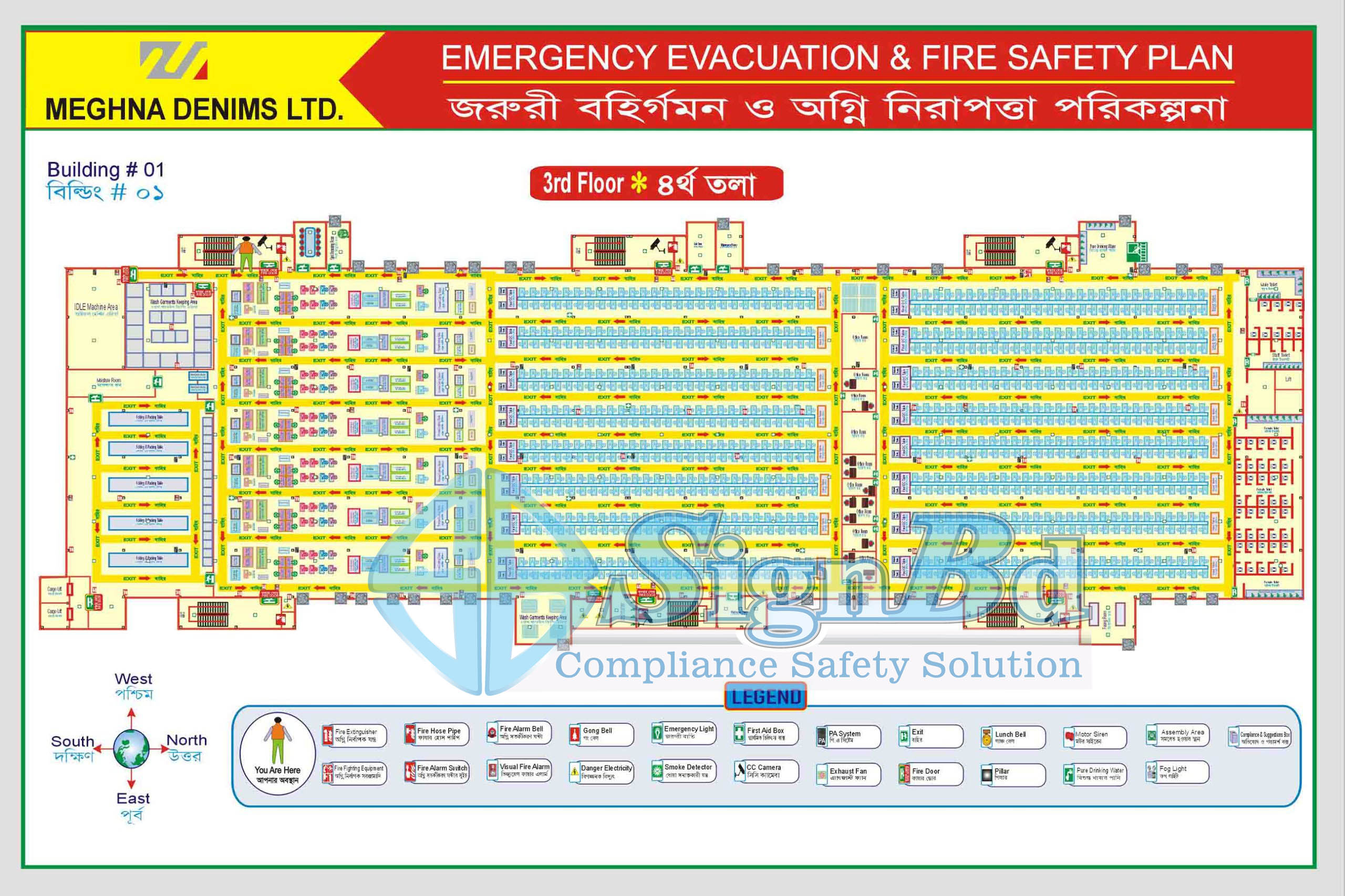
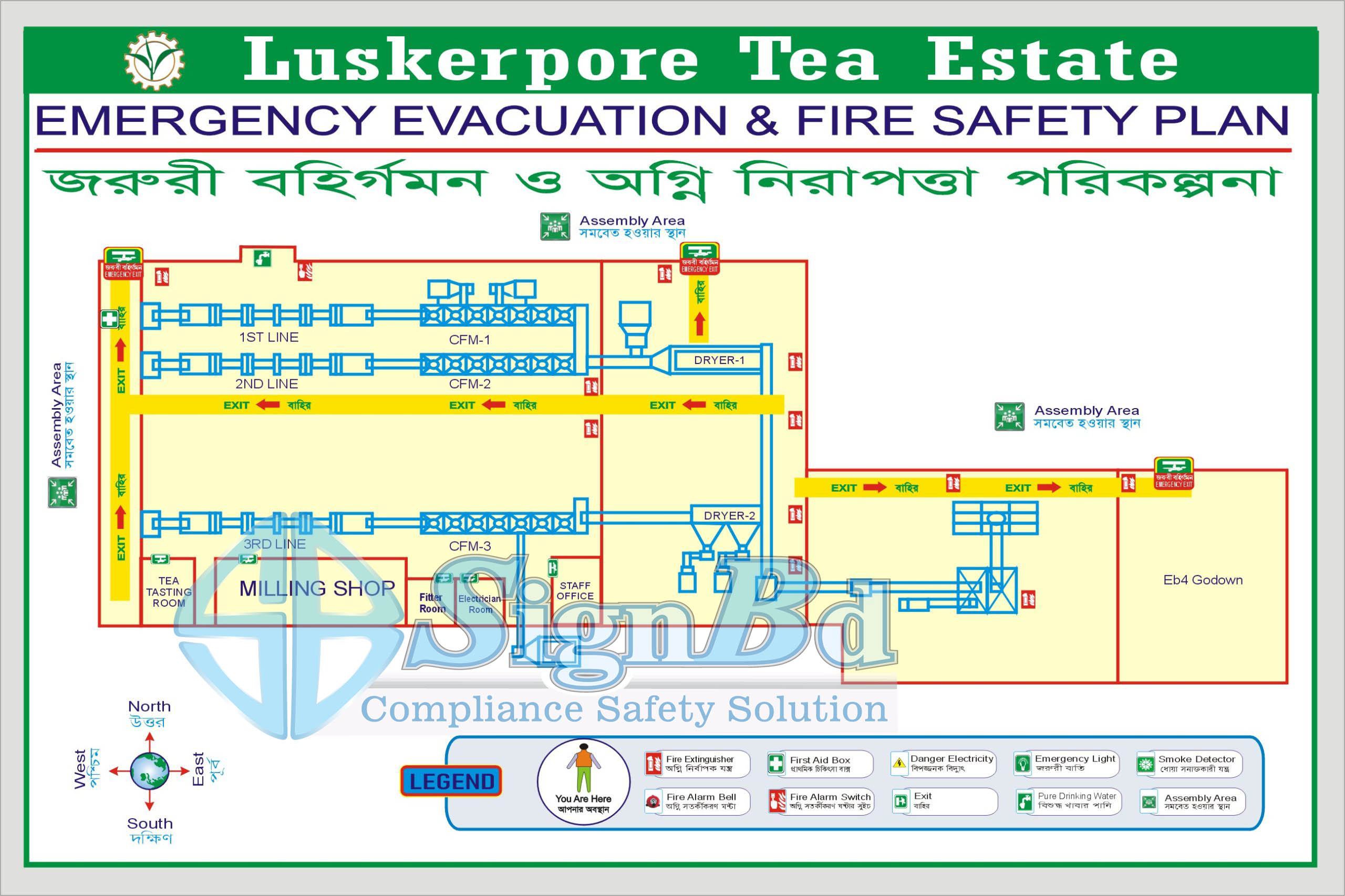
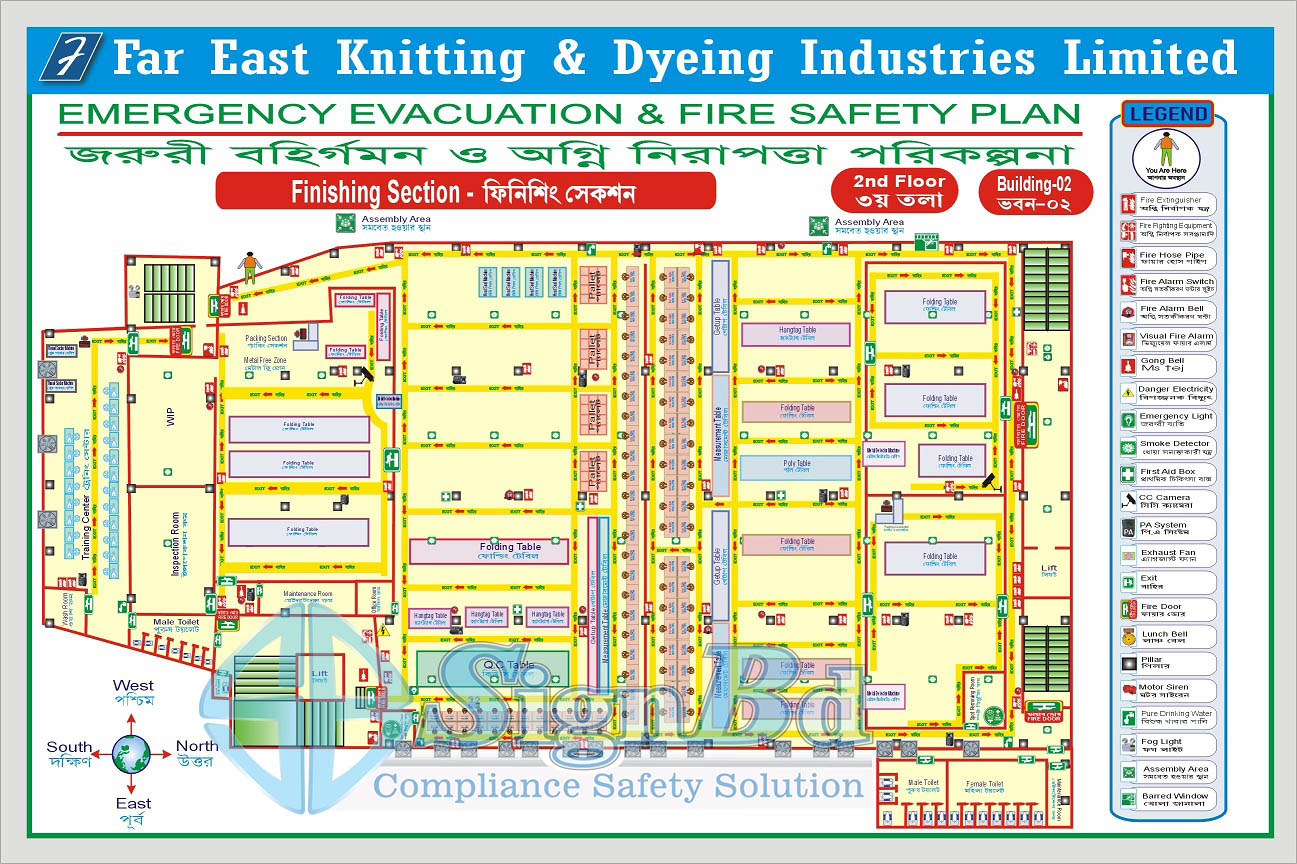
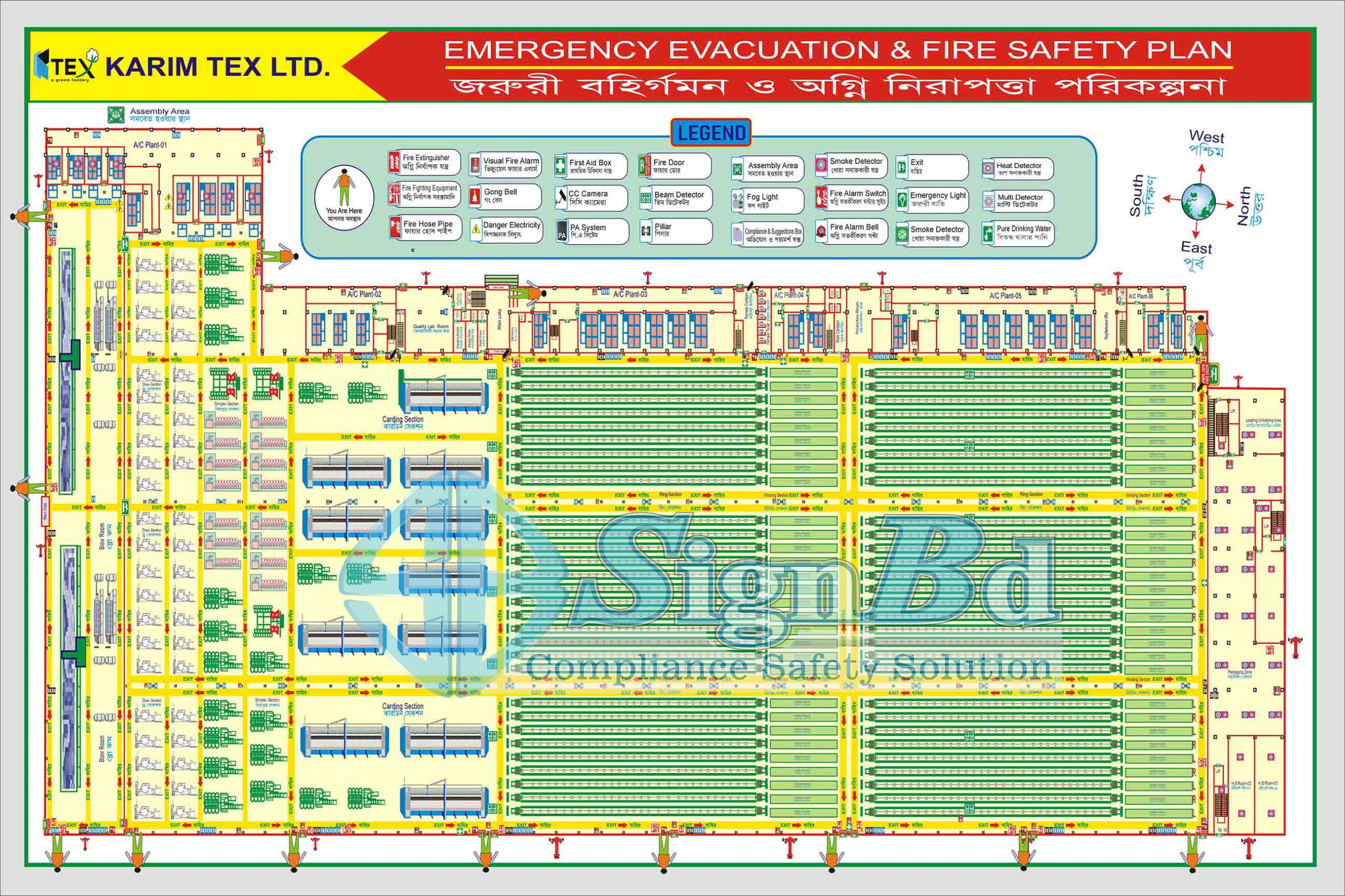
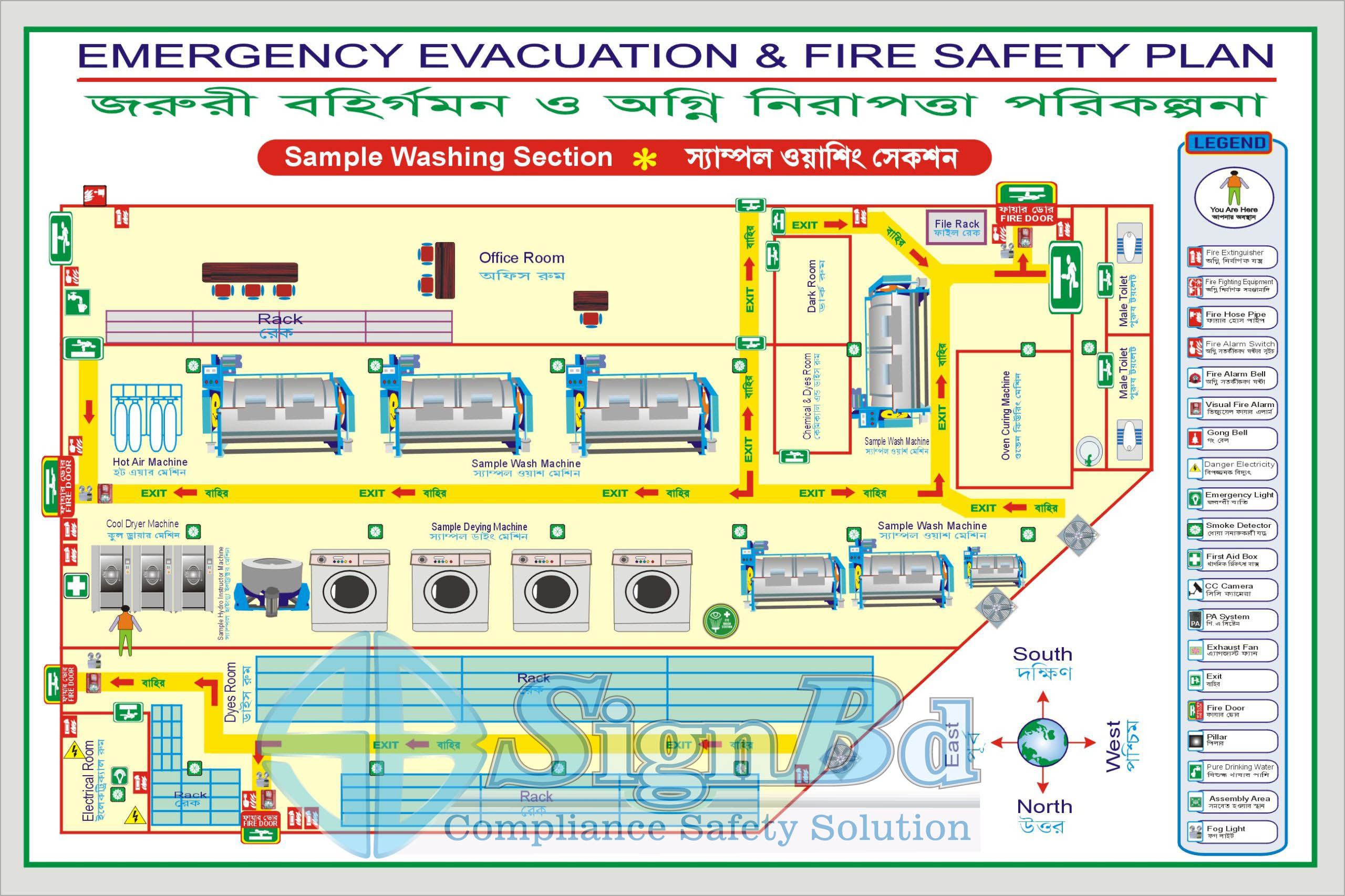
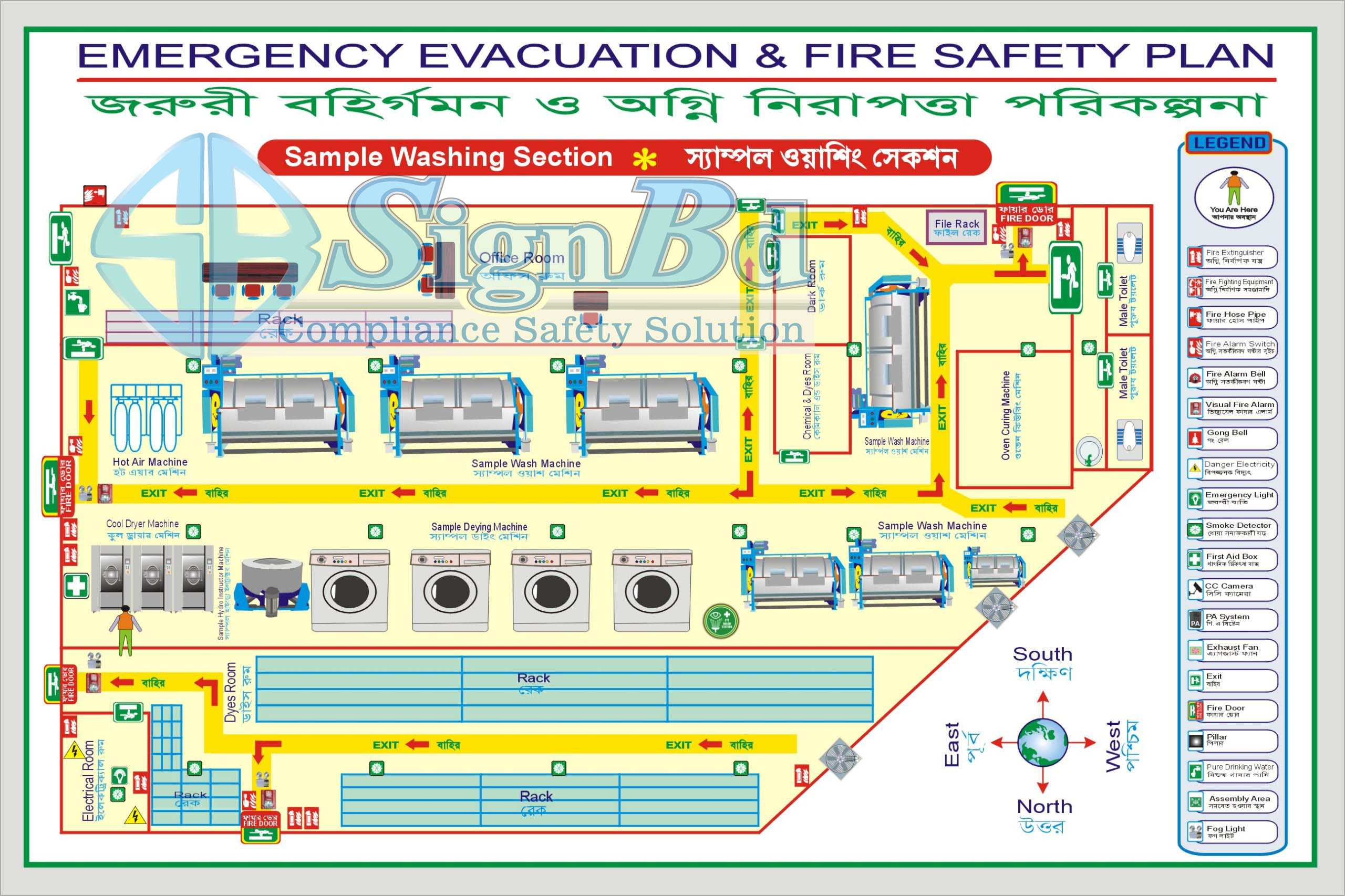

Compliance-Related Custom Sign Design
In ensuring safety and compliance in various industries, having the right signage is crucial.
SignBd specializes in compliance-related safety signs, risk assessments, flow charts, operating procedures, policies, MSDS, fire safety evacuation floor plans (drawing designs), fire safety signs.
Compliance-related safety signs, and chemical safety signs are custom designed.
We have completed expertise in Garment Factories, Green Factories, Textile and Shoe Factories, Pharmaceutical Companies, Washing Factories, Foods, Dyeing Factories, Dyeing Finishing, Tannery and ETP industries.
US and European buyers are active in these industries.
SignBd is experienced in custom sign design according to Fire Safety Evacuation Floor Plan category.
Our expertise spans since 2006.
Wherever you are? Share your plan with us. Our team is always ready to serve you.
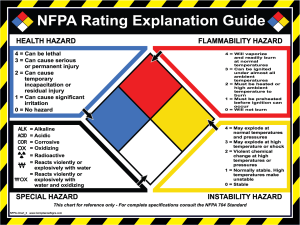
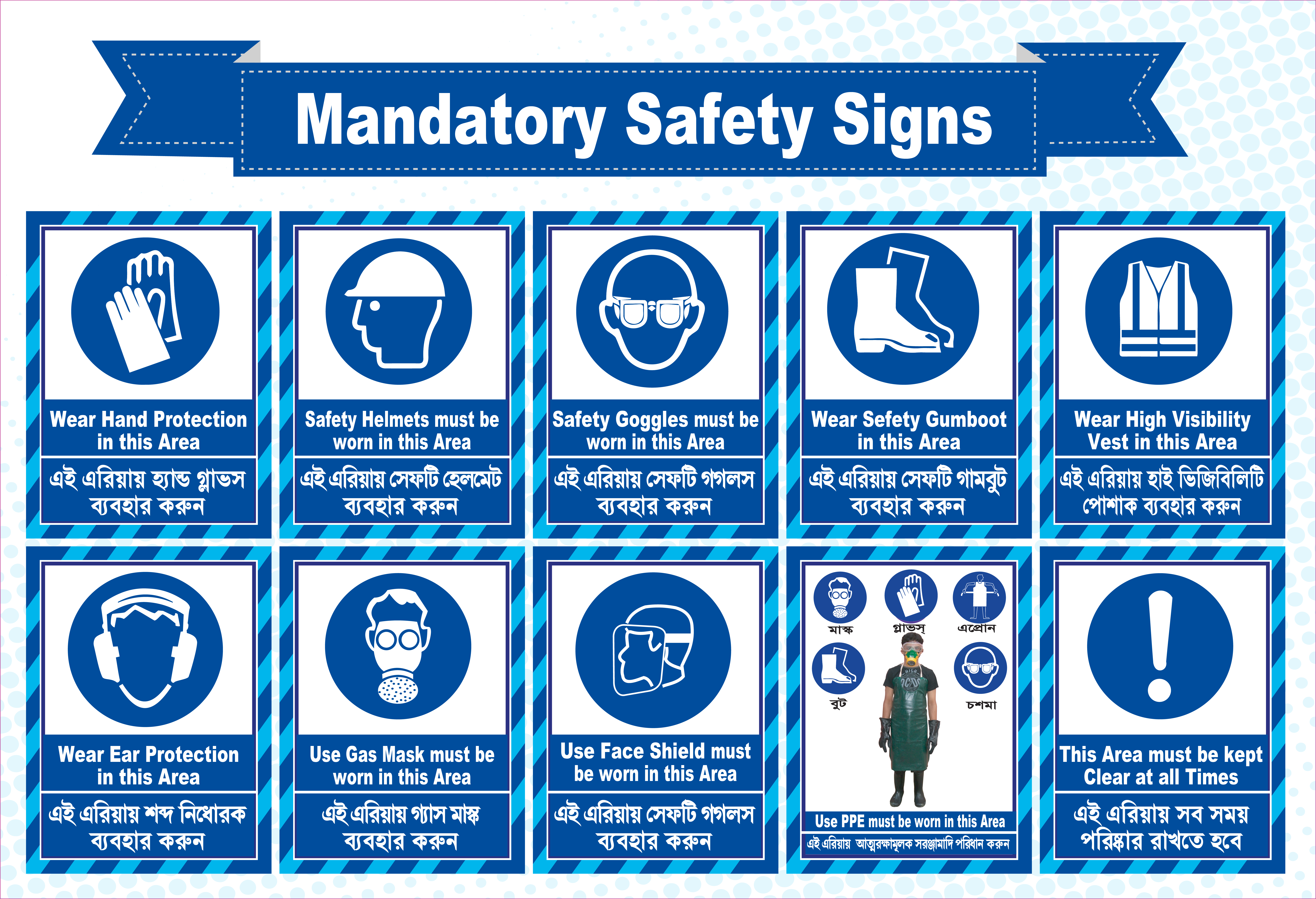

Gate in Touch:
Copyright © 2006 | Powered by signbd
